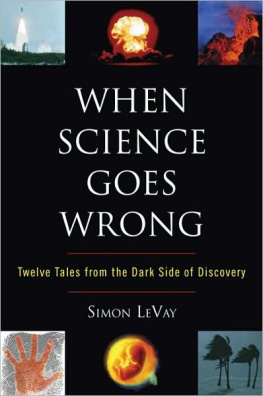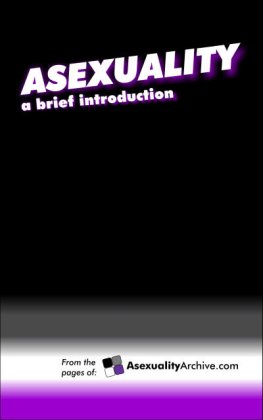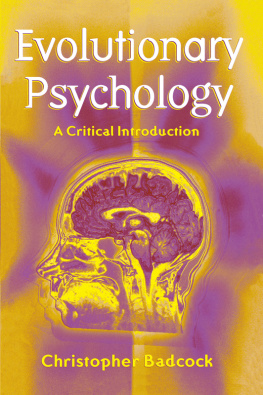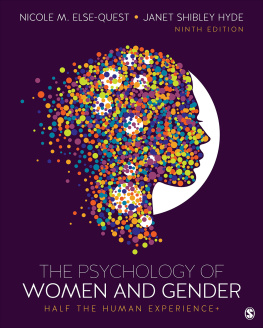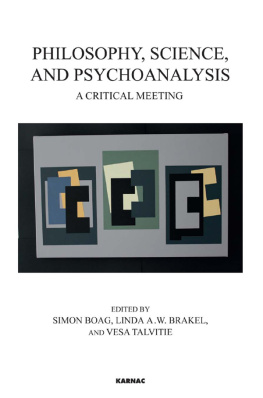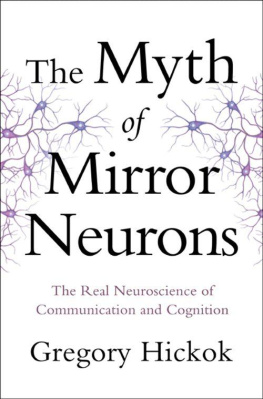GAY, STRAIGHT, AND THE
REASON WHY
GAY, STRAIGHT,
and the
REASON WHY
THE SCIENCE OF SEXUAL ORIENTATION
SIMON LEVAY


Oxford University Press, Inc., publishes works that further Oxford Universitys objective of excellence in research, scholarship, and education.
Oxford New York
Auckland Cape Town Dar es Salaam Hong Kong Karachi
Kuala Lumpur Madrid Melbourne Mexico City Nairobi New Delhi
Shanghai Taipei Toronto
With offices in
Argentina Austria Brazil Chile Czech Republic France Greece
Guatemala Hungary Italy Japan Poland Portugal Singapore South Korea
Switzerland Thailand Turkey Ukraine Vietnam
Copyright 2011 by Simon LeVay
Published by Oxford University Press, Inc.
198 Madison Avenue, New York, New York 10016
www.oup.com
Oxford is a registered trademark of Oxford University Press
All rights reserved. No part of this publication may be reproduced, stored in a retrieval system, or transmitted, in any form or by any means, electronic, mechanical, photocopying, recording, or otherwise, without the prior permission of Oxford University Press.
Library of Congress Cataloging-in-Publication Data
LeVay, Simon.
Gay, straight, and the reason why: the science of sexual orientation/Simon LeVay.
p. cm.
Includes bibliographical references and index.
ISBN 978-0-19-973767-3
1. Sexual orientation. 2. Sex (Psychology)
3. Sex (Biology) I. Title.
BF692.L476 2010
155.3dc22
2009049210
1 3 5 7 9 8 6 4 2
Printed in the United States of America on acid-free paper
CONTENTS
CHARACTERISTICS OF GAY AND
STRAIGHT ADULTS
INTRODUCTION
I n August 1991, when I was a neuroscientist working at the Salk Institute for Biological Studies in San Diego, I published a short research paper in the journal Science. The article was titled A difference in hypothalamic structure between heterosexual and homosexual men. It attracted a great deal of interest from the media, the general public, and the scientific community, and it helped trigger a wave of new research into an age-old question: What makes people straight or gay?
The hypothalamusour sex drive. In my study, I took specimens of the hypothalamus from men and women who had died and were undergoing autopsy. About half of the men were gay. I focused on a region at the front of the hypothalamus that is known to be involved in regulating the sexual behaviors typically shown by males. Within this region lies a rice-grain-sized collection of nerve cells named INAH3, which is usually larger in men than in women. I confirmed this basic sex difference. In addition, however, I found that INAH3 was significantly smaller, on average, in the gay men than in the straight men. In fact, there was no difference in size between INAH3 in the gay men and the women in my sample. I interpreted this finding as a clue that biological processes of brain development may influence a mans sexual orientation.
I was certainly not the first person to have thought about sexual orientation from a biological perspective. A hundred years ago, a German physician and sex researcher, Magnus Hirschfeld, proposed that brain development followed different paths in fetuses destined to become gay adults and those destined to become straight. Just a year before I published my study, a Dutch group reported that another cluster of cells in the hypothalamus, the suprachiasmatic nucleus, also differed in size between gay and straight men. And, during the mid 1980s, psychiatrist Richard Pillard of Boston University had reported evidence that homosexuality clustered in certain families, raising the possibility that genes running in those families might be influencing the sexual orientation of family members.
But my report differed in significant respects from most earlier ones. For one thing, by studying a brain region that is known to help regulate our sexuality I was, perhaps, cutting closer to the heart of the matter than earlier studies had done. Also, many of the earlier studies had talked about homosexuality as if it was an abnormality or problem, while heterosexuality was something so normal that it barely needed to be mentioned. The Dutch researchers, for example, had titled their study An enlarged suprachiasmatic nucleus in homosexual menas if gay men had some kind of pathological swelling or tumor in that part of their brains. I doubt that the Dutch researchers actually thought about the matter in that way. Still, by titling their study as they did they fostered a point of view that has been all too prevalent over the yearsa point of view that could be summarized in the question: Whats wrong with gay people?
Theres nothing wrong with gay people. Im gay myself, and happy to be so. There are some differences between us and the rest of humanity, certainly, as Ill discuss in this book. Some of these differences are trivial, and some may influence peoples lives in interesting ways, making being gay or straight more than just a matter of who we love. But pathology doesnt come into it.
Whatever the exact reason, my 1991 study received a lot more attention from the media, and from the public at large, than had earlier studies. On the day of publication, most of the leading U.S. newspapers carried front-page stories about it. Because I was home-town talent, the San Diego Union-Tribune actually gave my report top billing, relegating what was probably a more significant news item on that daythe collapse of the Soviet Unionto a humbler position on the page.
Gay people reacted more favorably to my report than they had done to earlier studies. Some gay academics did exhibit a certain hostilityI recall psychologist John De Cecco of San Francisco State University denouncing it as another example of medical homophobia in a television interview. More commonly, though, gay people told me that my finding validated their own sense of being born gay or being intrinsically different from straight people. This they perceived as a good thing, because people with anti-gay attitudes often portray homosexuality as a lifestyle or a choice that people makeand by implication a bad choice.
My own position is this: The scientific knowledge currently available does bolster the idea that gays and lesbians are distinct kinds of people who are entitled to protection from discrimination, especially by governments, rather in the same way that racial minorities are. But I also believe that there would be plenty of reasons why gay people should be accepted and valued by society, even if being gay were proven to be an outright choice.
I wrote extensively about the social implications of this kind of research in my earlier book, Queer Science, so I will not revisit that theme here, except for a few closing remarks. Rather, my intent in the present book is simply to give some idea of where the science stands today, 19 years after my Science paper appeared.
That paper was followed by a welter of new research. Not by myself, because I left my position at the Salk Institute in 1992. Since then, I have occupied myself as a writer and teacher, but I have maintained a close interest in the field that I had worked in. Much of the new research has been done by a younger generation of scientistsneuroscientists, endocrinologists, geneticists, and cognitive psychologistsin laboratories across the United States, in Canada, Britain, and several European countries.
Next page

